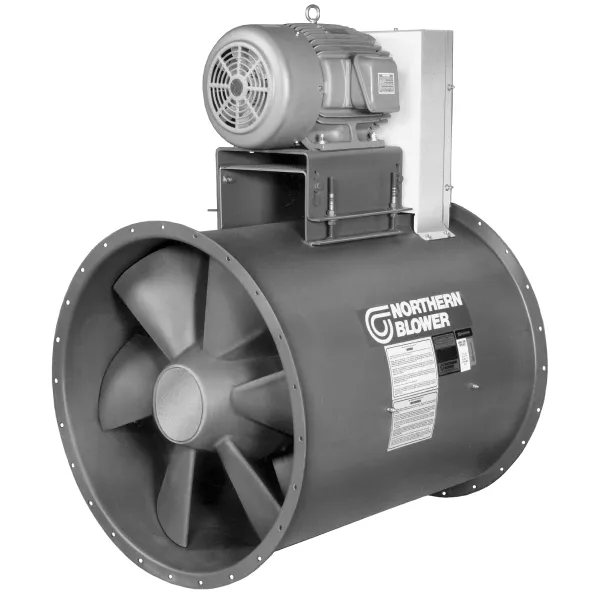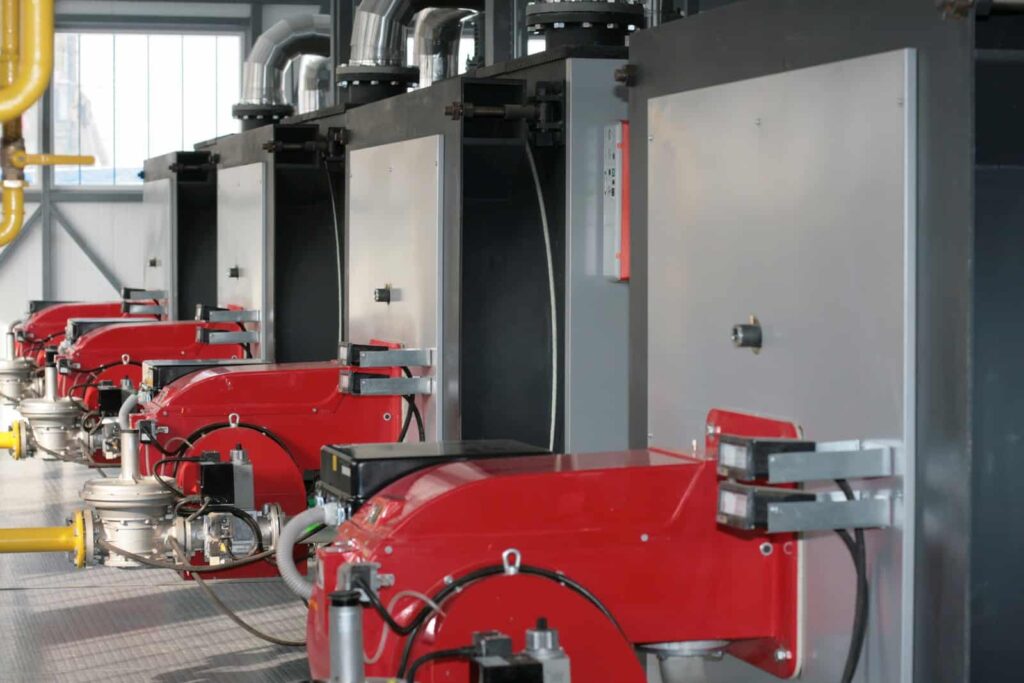In the Electronics & Optics industry, manufacturing environments require high precision and strict control over temperature, humidity, and air quality. The presence of dust, toxic gases, or unstable temperatures can severely impact the performance of electronic components and optical devices. Industrial fans play a crucial role in maintaining an optimal production environment, ensuring product quality and workplace safety. Below are some key applications of industrial fans in this sector.
1. Cooling and Ventilation Systems in Electronic Component Manufacturing Plants
Electronic components such as microchips, motherboards, and semiconductor chips are highly sensitive to high temperatures. Excessive heat can lead to malfunctions, reduced efficiency, and even permanent damage to these delicate components.
-
Industrial cooling fans help maintain a stable temperature within production facilities, ensuring optimal working conditions for both machines and personnel.
-
They prevent overheating of manufacturing equipment, thereby reducing production errors and increasing operational efficiency.
-
Proper ventilation ensures that heat generated by machinery is effectively dissipated, reducing the likelihood of thermal stress on sensitive components.
2. Cleanroom Ventilation for Optical & Semiconductor Manufacturing
The optical and semiconductor industries require highly controlled cleanroom environments to prevent contamination of products. Even microscopic dust particles can compromise the performance and reliability of optical lenses, semiconductors, and precision instruments.
-
Industrial air filtration and HVAC systems equipped with HEPA (High-Efficiency Particulate Air) filters help maintain air purity levels that meet ISO Class 1 – 8 cleanroom standards.
-
These systems effectively remove airborne contaminants, protecting delicate manufacturing processes.
-
Fans with controlled airflow help regulate humidity and prevent static electricity buildup, which can damage sensitive components.
3. Cooling and Ventilation for SMT (Surface-Mount Technology) Assembly Lines
Surface-Mount Technology (SMT) assembly lines involve high-temperature processes such as reflow soldering, which can generate intense heat and hazardous fumes.
-
Industrial exhaust fans remove soldering fumes, toxic gases, and airborne particles, creating a safer and healthier working environment for employees.
-
Proper ventilation helps cool down SMT machinery, preventing overheating and improving production efficiency.
-
Enhanced air circulation also minimizes defects caused by heat stress on circuit boards and components.
4. Heat Dissipation in Battery & Renewable Energy Manufacturing Facilities
Battery manufacturing plants, particularly those producing lithium-ion batteries, require effective thermal management to prevent overheating, which can lead to reduced battery life or even fire hazards. Similarly, solar panel production involves processes that generate significant heat.
-
Industrial cooling fans help dissipate excess heat, maintaining an optimal temperature range for battery assembly and storage.
-
Proper ventilation reduces the risk of thermal runaway, a dangerous condition where excessive heat leads to a chain reaction of increasing temperatures in battery cells.
-
In solar panel production, cooling fans improve working conditions and help maintain material integrity during fabrication.
5. Toxic Gas Extraction & Dust Control in LED Manufacturing Plants
LED production involves the use of hazardous chemicals such as gallium arsenide (GaAs), which can emit toxic fumes if not properly managed. Additionally, the cutting, grinding, and coating processes in LED fabrication produce fine dust particles that can pose health risks and affect product quality.
-
Industrial exhaust and filtration systems effectively capture and remove toxic gases, protecting workers from exposure to harmful chemicals.
-
Dust control systems prevent contamination of LED components, ensuring high product quality.
-
Proper air circulation reduces the risk of electrostatic discharge (ESD), which can damage sensitive LED chips.
Conclusion
Industrial fans play a vital role in maintaining air quality, controlling temperature, and ensuring the safety and efficiency of production processes in the Electronics & Optics industry. By integrating high-performance ventilation and filtration systems, manufacturers can enhance product reliability, protect workers, and optimize production environments for maximum efficiency.

